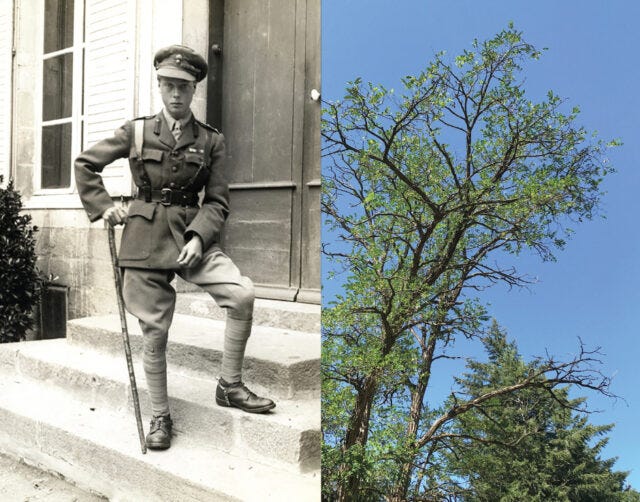
*This story also appears in CV Collective.
Over a century ago, on a Monday in late September, crowds of young and old thronged Vancouver’s sidewalks. Mothers fussed over their children’s hair. Dressed in their Sunday best, onlookers peered over shoulders and jostled for space close to the street for a better view.
A motorcar sputtered by, and the throng hooted, clapped, and waved the Union Jack. From the back seat, a young man in full military dress tipped his hat to the admirers. Here he sat, the great-grandson of Queen Victoria, His Royal Highness the Prince of Wales, next in line to be king of the United Kingdom and the Dominions of the British Empire and Emperor of India, Edward Albert Christian George Andrew Patrick David.
The prince was hurrying to official royal business: he was going dancing. At 25 years old, and on the tail end of a two-month Canada-wide tour in 1919, the eligible bachelor and Great War veteran had no shortage of dance partners and admirers. To date, the dance was the largest gathering in Vancouver’s history, with a guest list of 10,000—one out of every ten residents—who foxtrotted until their feet blistered.
Later in his Canadian trip, he sailed to Victoria and toured Vancouver Island in a single day. On his ride along the E&N Railway, he stopped at every town to give a speech and declare that children had the next day off school (because royals can do that, I guess).

He spent an entire three hours in “Courtenay and District” and filled those hours with the best offerings from the area, first stopping to throw rocks at salmon off the 5th Street bridge. Just like they had done in his other Canadian stops, nearly every loyal Anglophile lined the streets and waved. In a special visit to Merville, where veterans were clearing the newly established community for settlement, the prince pressed a plunger to blow up 22 stumps. The townspeople then lit a 50-foot-high bonfire to honour him. Besides a few stunned fish (now long departed) the prince left a legacy during his brief visit that lives on today.
According to a local history book, when the prince opened Merville’s brand-new schoolhouse (which builders rushed to finish in two weeks to match up with his arrival), he planted an acacia tree at the bottom of the driveway.
The school no longer stands—it’s been replaced by a simple house—but an intriguing tree remains in the driveway.
Its crown stretches out from a thick main trunk cross-hatched with deep grooves. The thing looks, well, really old. I identified the tree as a black locust. A beekeeper’s favourite, this non-native flowering tree also goes by the name false acacia. The slight misnomer aside, I’m pretty sure this is the royal tree.
Maybe it’s no surprise the royal tree has faded from memory. (Even the homeowner was unaware of its historic roots.) Does the average Islander care that an entitled aristocrat planted a tree over a hundred years ago? Probably not.
What’s more, this particular prince turned out to be not so charming. In January 1936, he became king, but abdicated the throne after less than a year. He believed in the superiority of the British and European cultures, and in 1937, he took a special trip to Nazi Germany, where he drove past crowds of adoring fans—only these ones waved swastikas and gave him the Nazi salute, which he returned. He dined with high-ranking Nazi officials and met in private with Adolf Hitler. The Brits suspected him of devising a plot to overthrow the British Crown and, in 1940, shipped him off to become governor of the Bahamas, where he could not influence the war.
Nowadays, over half of Canadians believe we should get rid of the British Crown as head of state. Barbados did so in 2021; several other Caribbean nations intend to follow suit. Even in the United Kingdom, nearly half of citizens (especially the young) believe the monarchy should be abandoned.
We could be witnessing the final links in a chain of rulers that stretches back to the ninth century, a dynasty some 600 years older than the modern English language. The black locust in Merville may yet outlast the monarchy that planted it.
